Subscribe to ShahidulNews
Rahnuma Ahmed
Calling for an end to the emergency rules, editors and senior journalists of the print and electronic media yesterday protested against the interference of government and military agencies in the everyday task of the media. ..[t]he media has to work under limited rights, pressure and in fear of fundamental-rights-denying emergency rules since the president declared the state of emergency on January 11 last year.
VOA News, May 14, 2008
My Dilemma
IN THESE times, writing or speaking in defiance of censorship is often viewed with a tinge of suspicion. There must be higher-up backing. Or else, how could she, how could he… One also comes across those who say, see, this proves there is no Emergency. Not in the strict sense of the word. This government is not like any other government. They are different.
Times must be pretty hard, I think, when a generalised suspicion passes for analysis. When sycophancy becomes second nature. The problem with Emergency is that it breeds irresponsibility. Our rulers know what is best for us. We will speak up after the government has set the house in order, after things have been sorted out. After the elections are over. After Emergency has been lifted. After this, after that ? it is a list that trails off into an indefinite future.
Too much abdication, too many ifs. Not only that. Emergency breeds a culture of fear. People are more likely to keep their mouths shut, to sound non-committal, to adopt an I-mind-my-own-business attitude, to churn out uniform phrases. The recent joint statement of the editors and senior journalists of Bangladesh (May 13, 2008), speaks of continuous monitoring and interference in the day-to-day running of print and electronic media, to a point where, as Nurul Kabir, editor of New Age put it, editors are no longer able to make ‘independent’ decisions.
And the source of interference? Some newspaper reports said, the editors spoke of ‘government agencies.’ In a daily I read, ‘civilian and military agencies.’ Yet another spoke of ‘government and military agencies’. A Daily Star report went a bit further, it said the editors had spoken of ‘a military intelligence agency’ (May 16, 2008), I saw people sitting up and taking note of the series of meetings being held at the National Press Club. I heard people utter the words `DGFI’, but I didn’t see it in print. I also heard, things are going to change from now on, heavy-handedness is likely to lessen, the editors’ demand created ripples. This, however, remains to be seen.
Since the declaration of Emergency, military interference in the print media has concentrated on changing priorities, on overseeing that particular news stories get reported, that others go unreported, or under-reported. These pressures are the more visible ones. But infiltration has occurred in more devious ways. A prime example is provided by confessions of politicians who allegedly pocketed public wealth. Most of these `confessions’, made under remand, have been printed in the dailies with tremendous enthusiasm. Not only in the tabloids, in the more serious papers too, without any mention of sources. As if the confession was made to the reporter, in person. A blogger has termed this “crossfire journalism,” because of its deafening one-sidedness. The accused is not given the opportunity of self-defense, to offer his or her side of the story. Interestingly, many of those accused have contested these confessions in court, they have claimed that these were made under duress. This does not seem to have caused much concern. I say this because I have not come across any retractions, nor have confessions ceased to be published. I have other concerns too. That the media does not sift through, that it does not investigate, that it reproduces whatever it is handed-out ? as long as it is from a particular source ? that I find very disturbing. Of course, not all newspaper editors have equally succumbed to the army’s campaign of calling the shots, but that is a separate issue.
In the case of private TV channels, interference has focused on news programmes, live discussion programmes, and also, nightly news review programmes, hosted mostly by journalists. In the latter two programmes, members of the audience raised questions. For instance, in Ekusheyr Shomoy, a panel of journalists acted as auditors to what the experts said. Many other programmes had live, viewer phone-ins. These features, in their own fashion, contributed to creating public spaces of democratic deliberation. (Of course, not all channels have been equally courageous, but that again, is a separate issue). From the interference that they face, it would seem that these spaces are perceived as threats. What does it threaten? Who does it threaten? These questions are sidelined, the emperor’s nakedness is not to be mentioned.
Military interference of these Emergency months has included a jealous guarding of its own image, of censoring photographs that threaten its sense of honour and dignity. Mahbubur Rahman, the former army chief was assaulted by party workers last year, strict instructions were given to newspaper offices that these photographs should not be published. The army has guarded its self-image of physical supremacy most viciously, as is symbolised by the furore over the photograph known as the `flying kick,’ taken during the Dhaka University student protests, in August 2007.
No timeline for the expiration of Emergency has been announced. Not yet. I would be lying if I said, everything seems to be fine, no deception seems to be involved. If I said, why worry?
Tales of censorship
The situation was far from ideal when political parties ruled the nation. Although newspaper ownership and content was not subject to direct government restriction, attacks on journalists and newspapers occurred frequently. Government efforts to intimidate them also occurred frequently. Political cadres would often attack journalists. Some were injured in police actions. For instance, according to a 2005 human rights report, 2 journalists were killed, 142 were injured, 11 arrested, 4 kidnapped, 53 assaulted, and 249 threatened. If one used similar indices of comparison for last year, the situation does not seem to have worsened. Thirty-five journalists were injured, 13 arrested, 35 assaulted, 83 threatened and 13 sued. A media practitioner was forced to sign an undertaking, another came under attack. (New Age, January 15, 2008).
But I think the terrain itself has changed, and hence, the terms of comparison need rethinking. Threats to the industry have surfaced that bring back older memories, Martial Law memories, even though we are constantly told that we have no reason to fear. These threats are substantial. The owners and directors of at least 5 TV channels, and 5 newspapers are facing ACC anti-corruption charges. The first and lone 24-hour news channel in the country, CSB, was taken off air last year, after the August protests. The closure of newspapers and TV channels, according to some observers, has broken the backbone of the media industry. It has caused massive unemployment among journalists, and others in media-related occupations. Wages are no longer regular. According to an insider friend, those working in a private TV channel received their wages and salaries for February last week only. In 5 or 6 newspapers, wages have not been paid for the last six months or so. The severe crisis in both print and electronic media is not only a financial one. In some senses, it is one of existence too. Existence as known thus far.
Journalists have been tortured for investigating security forces (Tasneem Khalil, Jahangir Alam Akash). It is rumoured that the owner of a private TV channel was picked up by security forces. He was left blindfolded, and released only after he had agreed to sign blank sheets of paper. Guidelines for talk shows have been issued. Names of blacklisted guest speakers have been circulated to private channels (white-listed ones too!). A faxed letter on plain paper asking Ekushey to close down its highly popular talk shows (Ekusheyr Shomoy, Ekusheyr Raat) was sent in end-January. Later, a similar letter was sent to most other channels. Sending plain paper directives, minus any letterhead, to newspaper and TV offices seems to be a new tactic of the military agencies. Leaving no footprints in the sand?
Tales of ownership
For the regime, the anti-graft drive has had some useful side-effects. The intelligence services are systematically acquiring shares in private media companies, by offering the release from detention of their owners in return.
The Economist, November 8, 2007
Is this true? Is there any way of verifying what is reported in the lines above? Why should the intelligence services buy up shares in the media industry? Any guesses?
Rumours have been floating of the intelligence agency brokering deals, of buying and selling shares in the media industry. If that’s true, how would that be in the public interest?
These are common enough questions that have bothered me, and all those I know who have read the article.
What intrigues me however is, the military intelligence agency already has vast powers at its disposal, powers that enable it to control the print and electronic media in this country, be a part of the conditioning factors that have led to the industry’s severe crisis, with an almost broken backbone, both financially and otherwise.
What further powers will ownership give? Should one look towards Pakistan’s milbus (military-business) to seek answers?
First published in New Age 20th May 2008





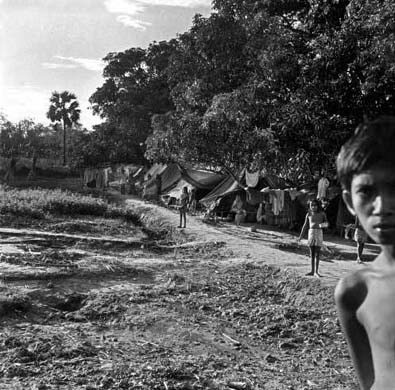
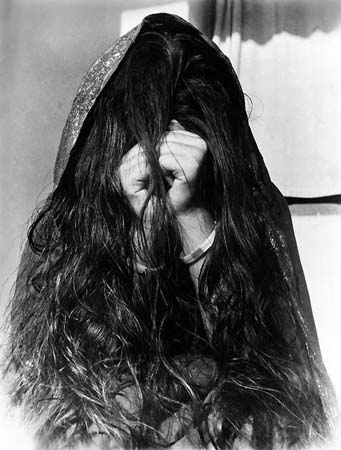
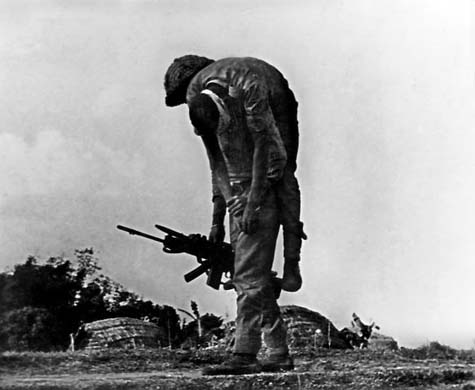
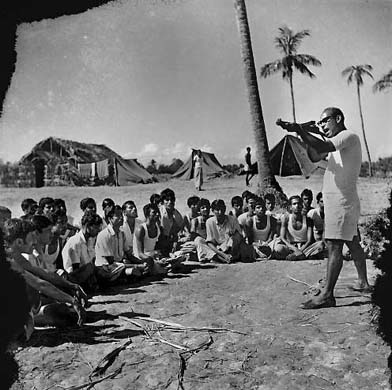
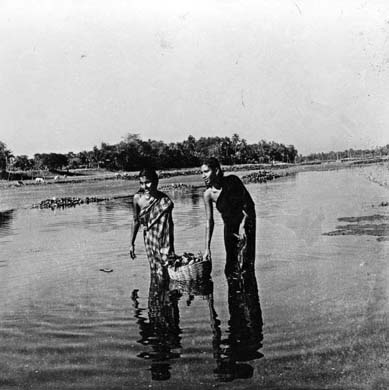


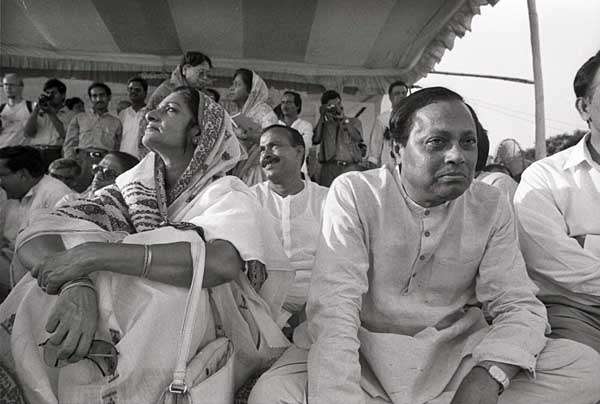


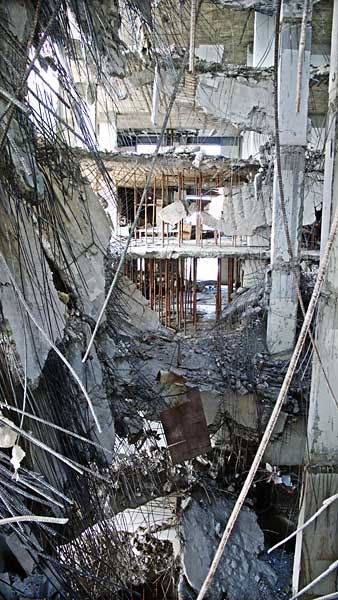
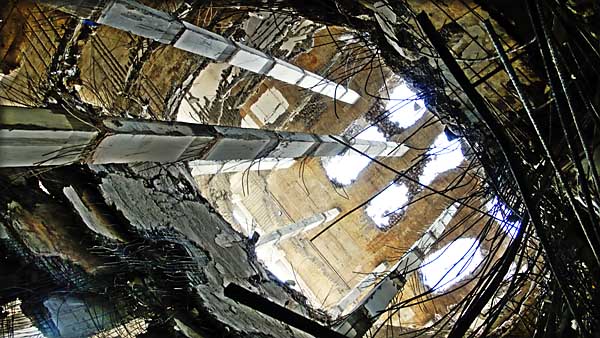



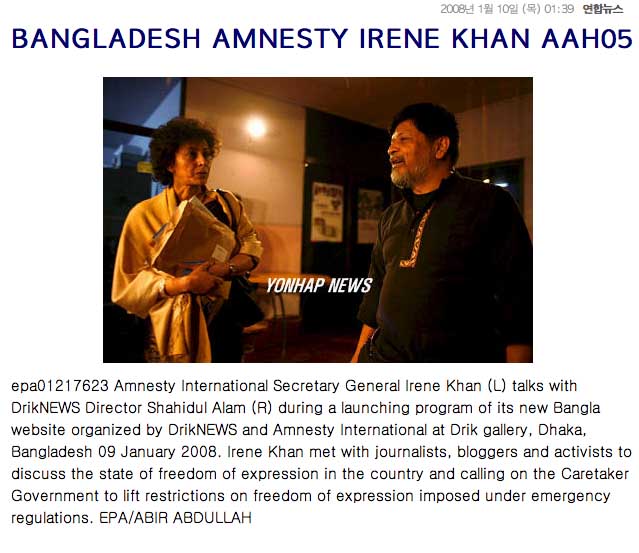 Feature on Korean media
Feature on Korean media 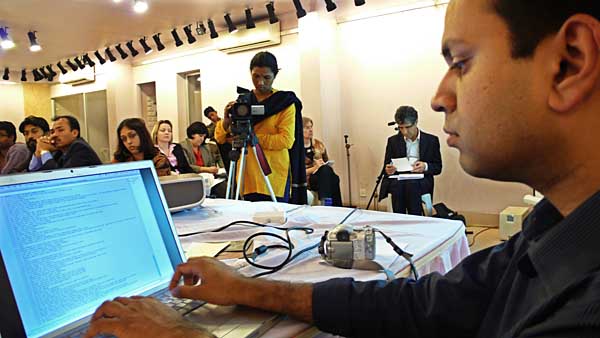
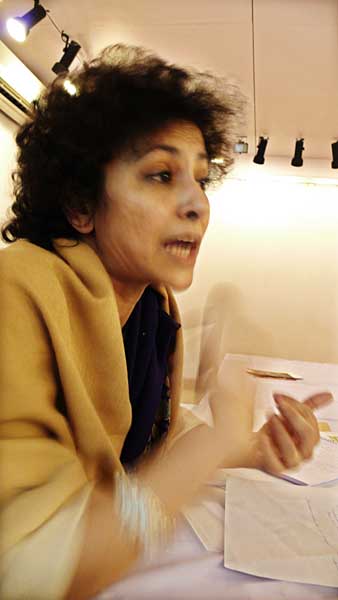
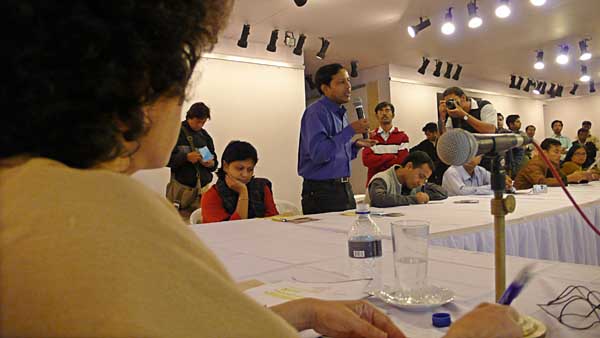
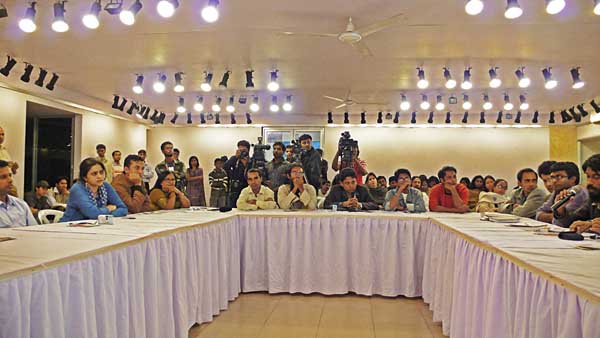
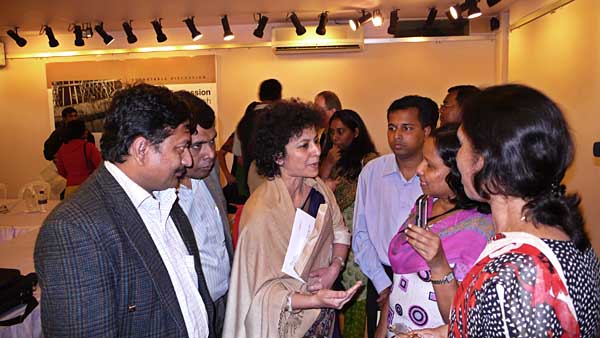

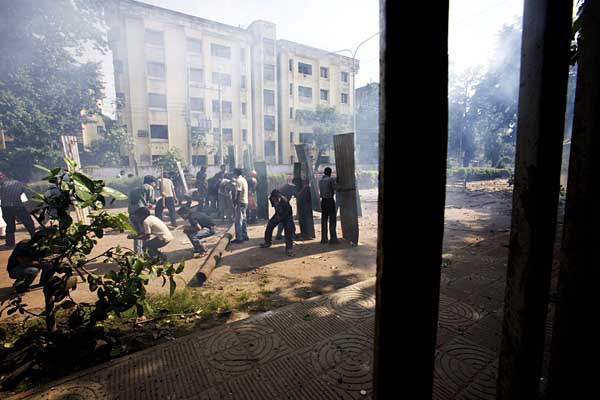
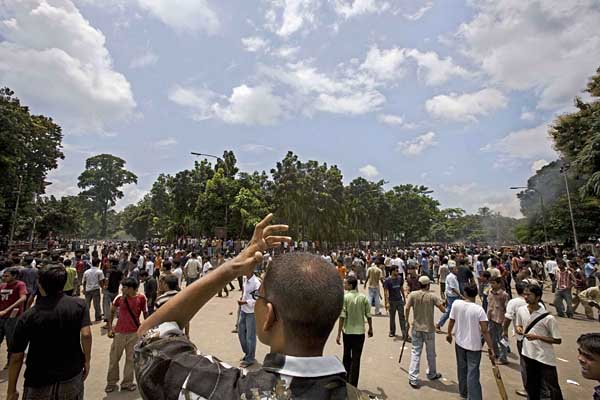
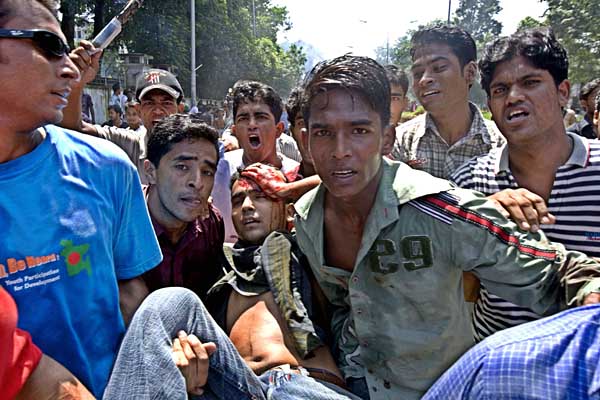
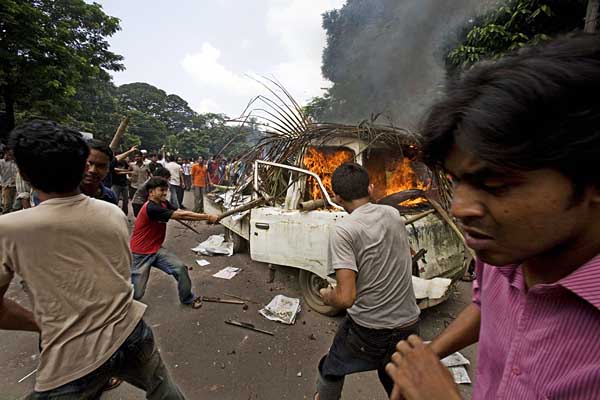
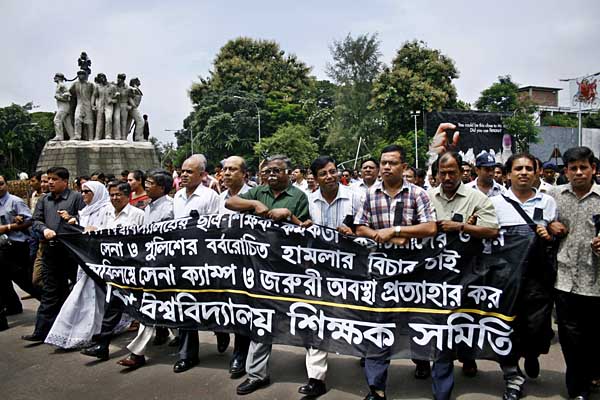
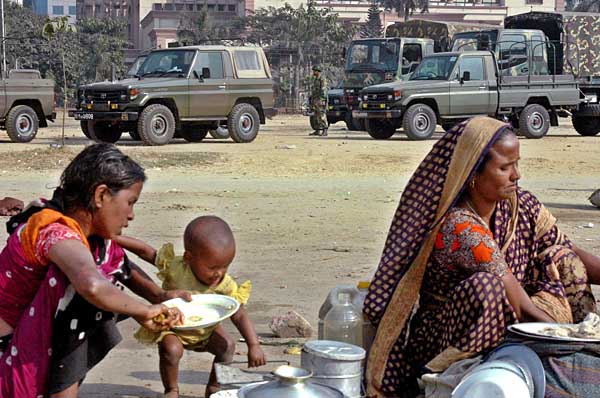
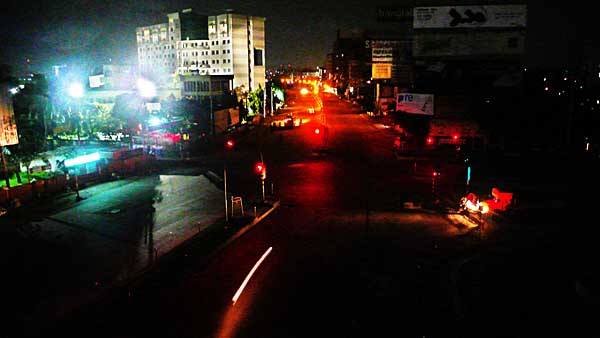
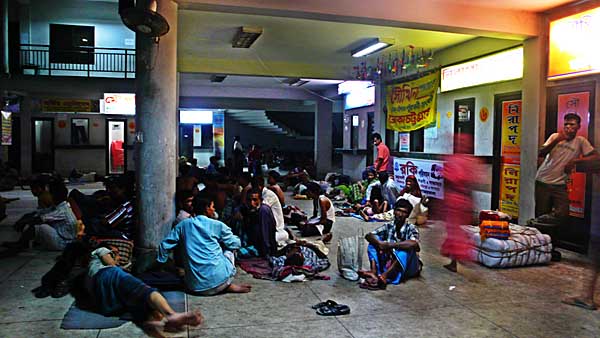
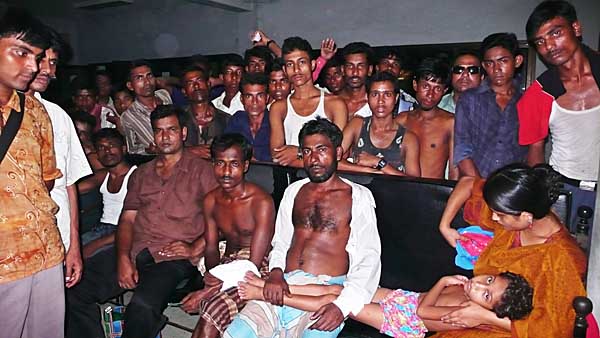
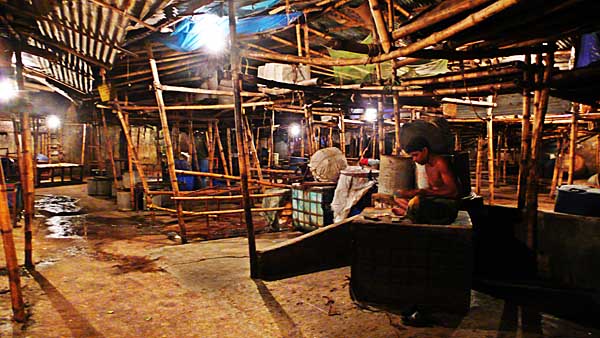
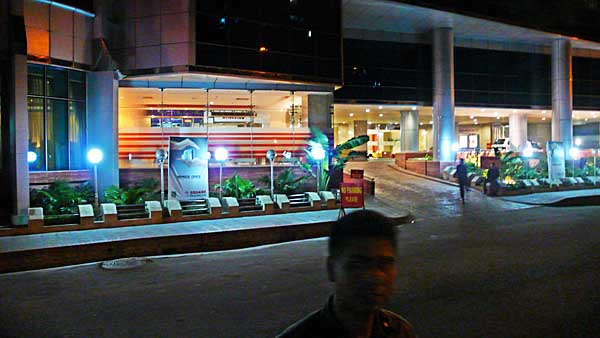
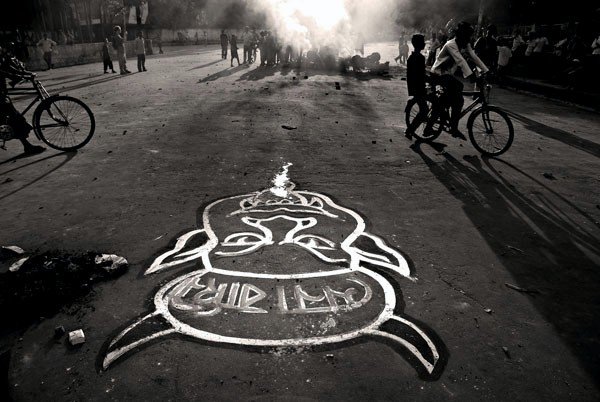





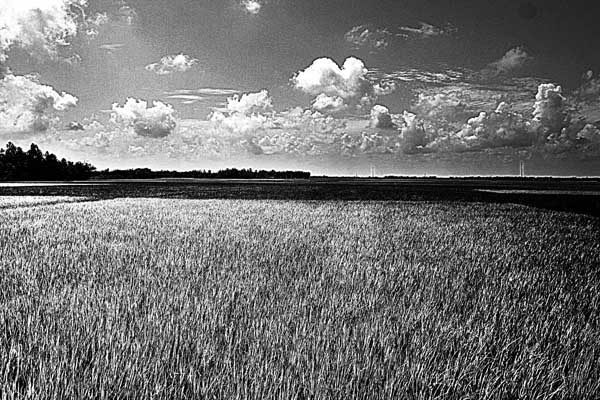





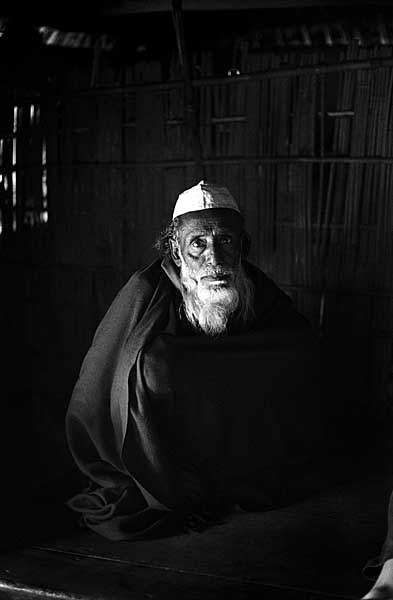
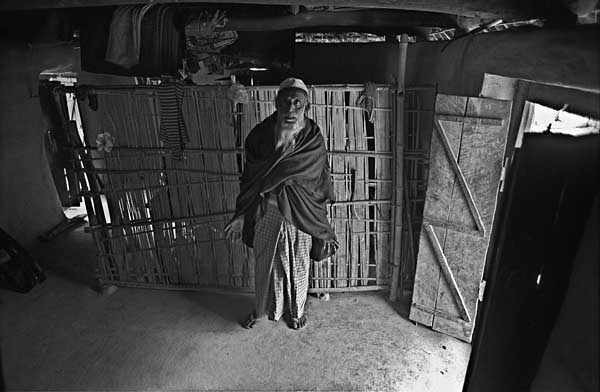
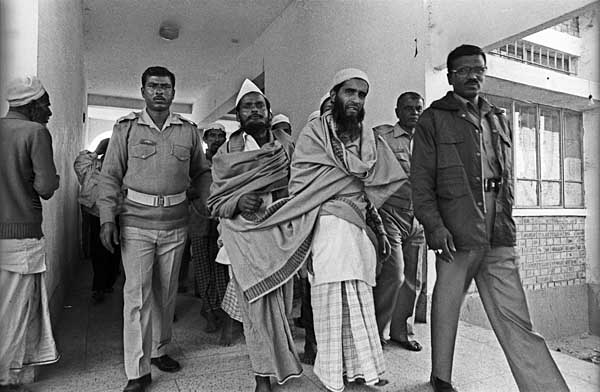
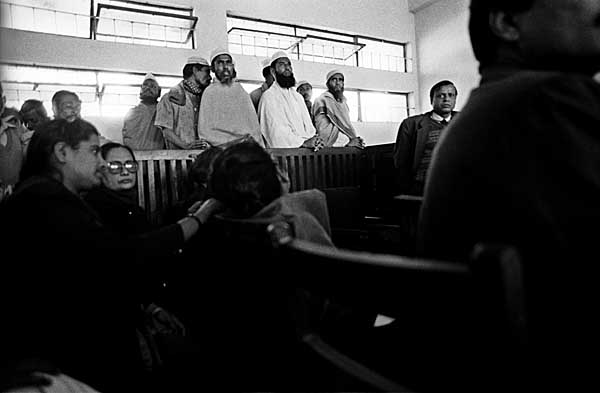
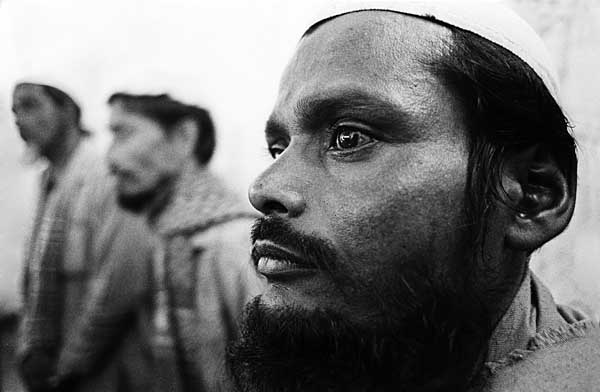
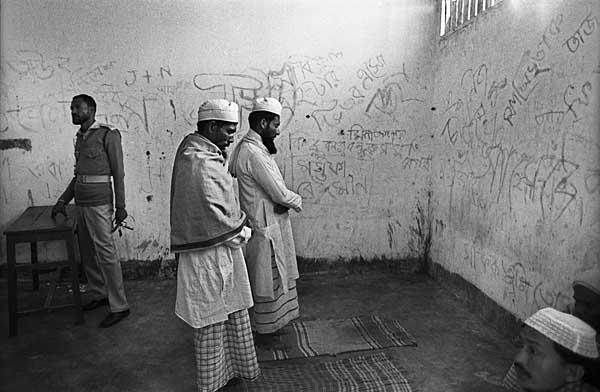
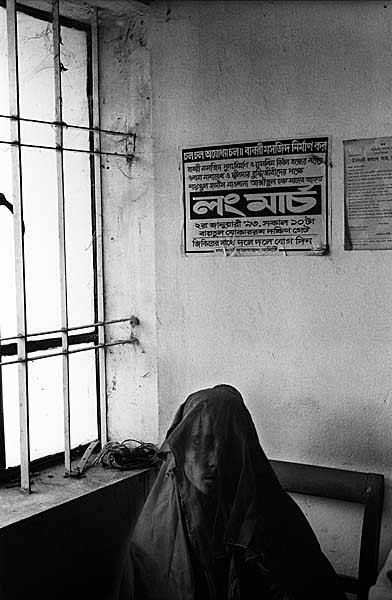
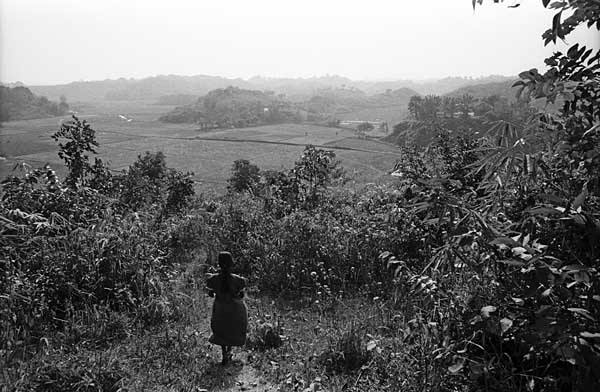
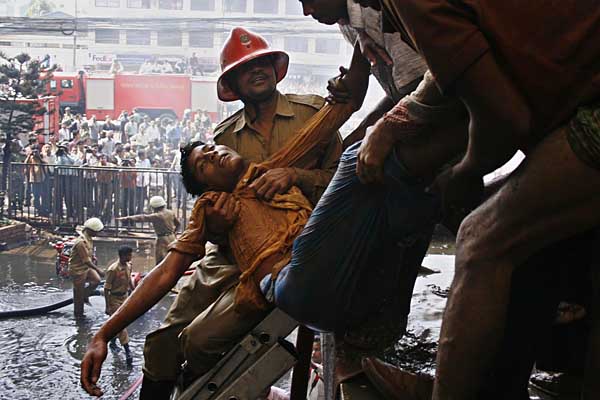
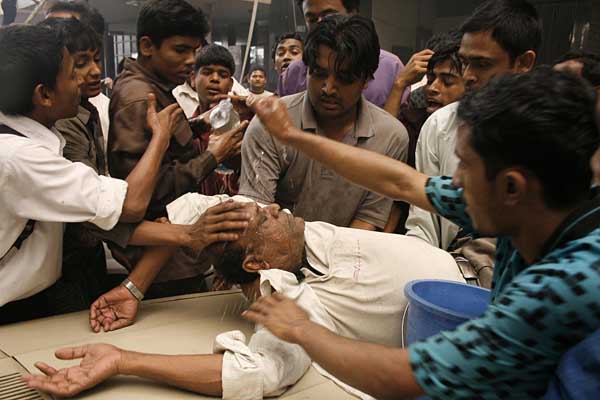
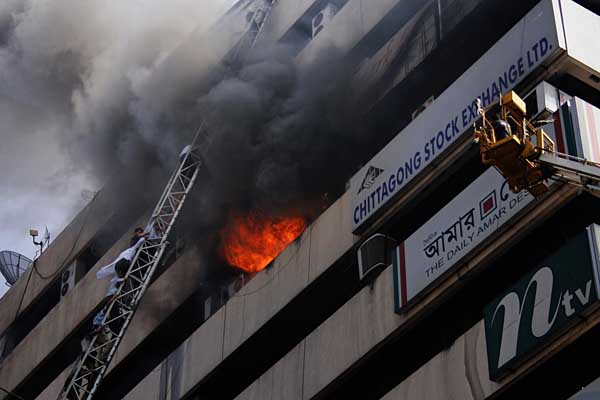
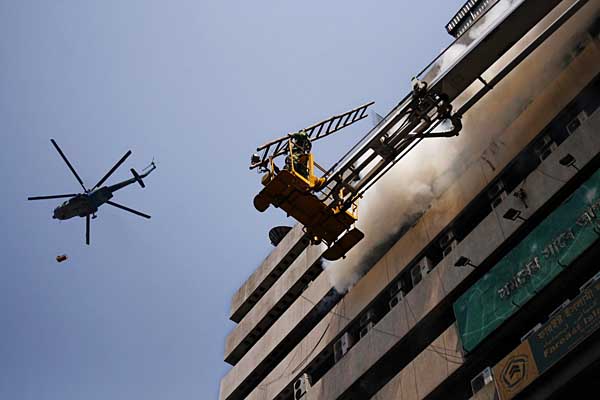
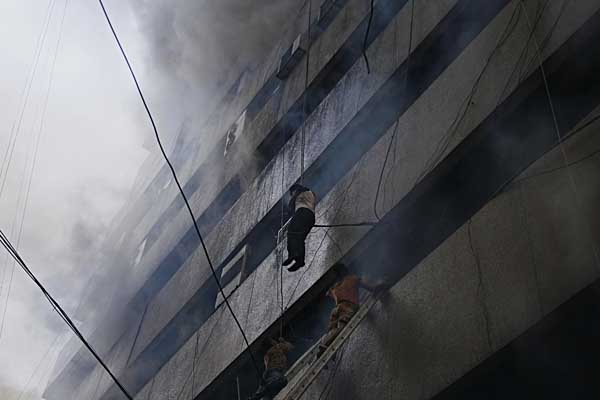
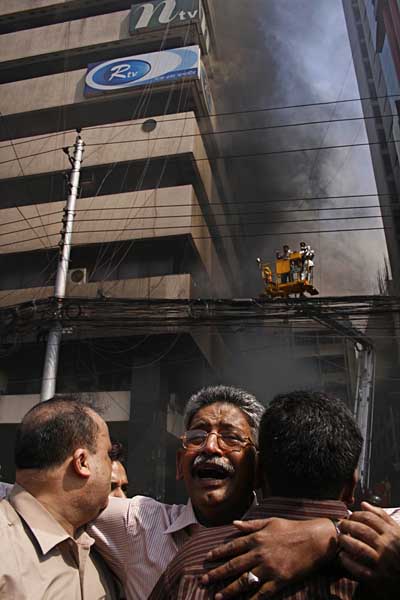 Photographs copyright Munir uz Zaman/Driknews
Photographs copyright Munir uz Zaman/Driknews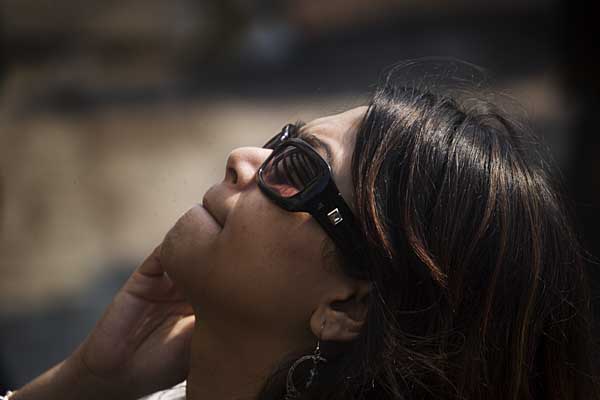 copyright: Shahidul Alam/Drik
copyright: Shahidul Alam/Drik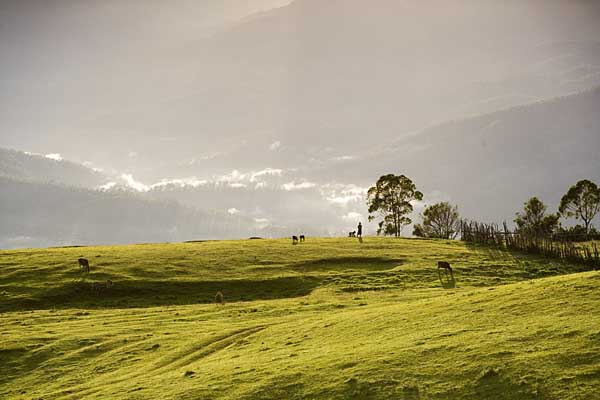 copyright: Shahidul Alam/Drik
copyright: Shahidul Alam/Drik